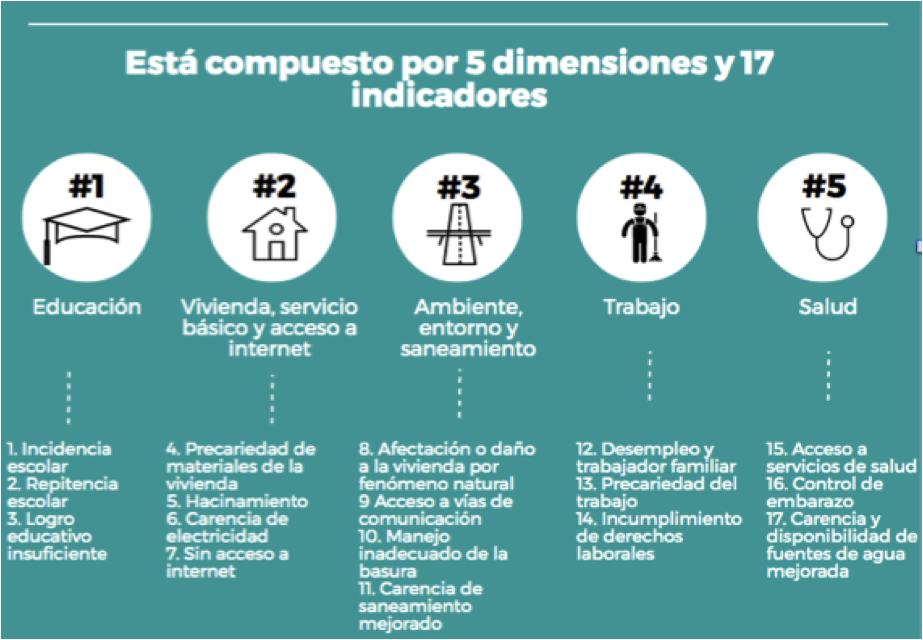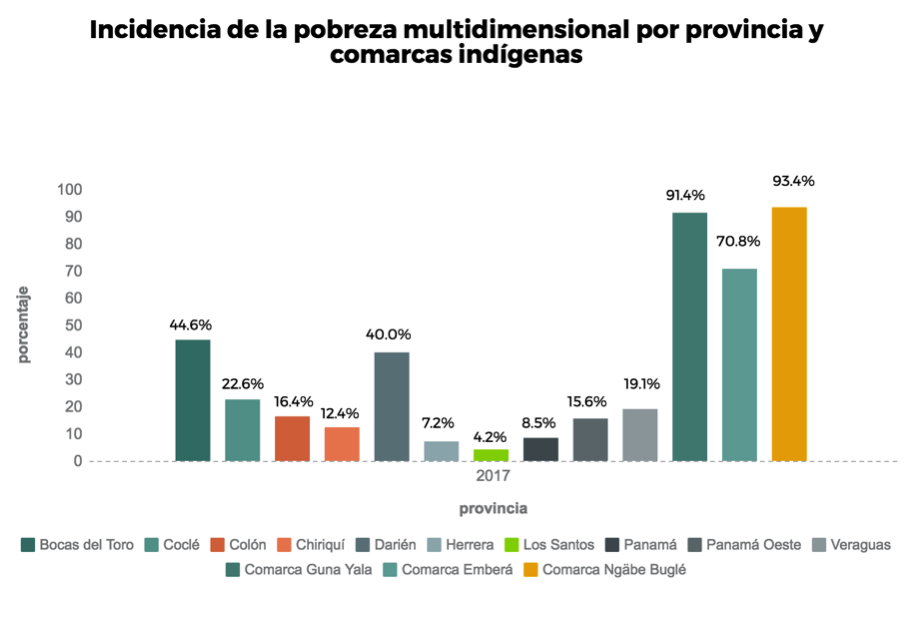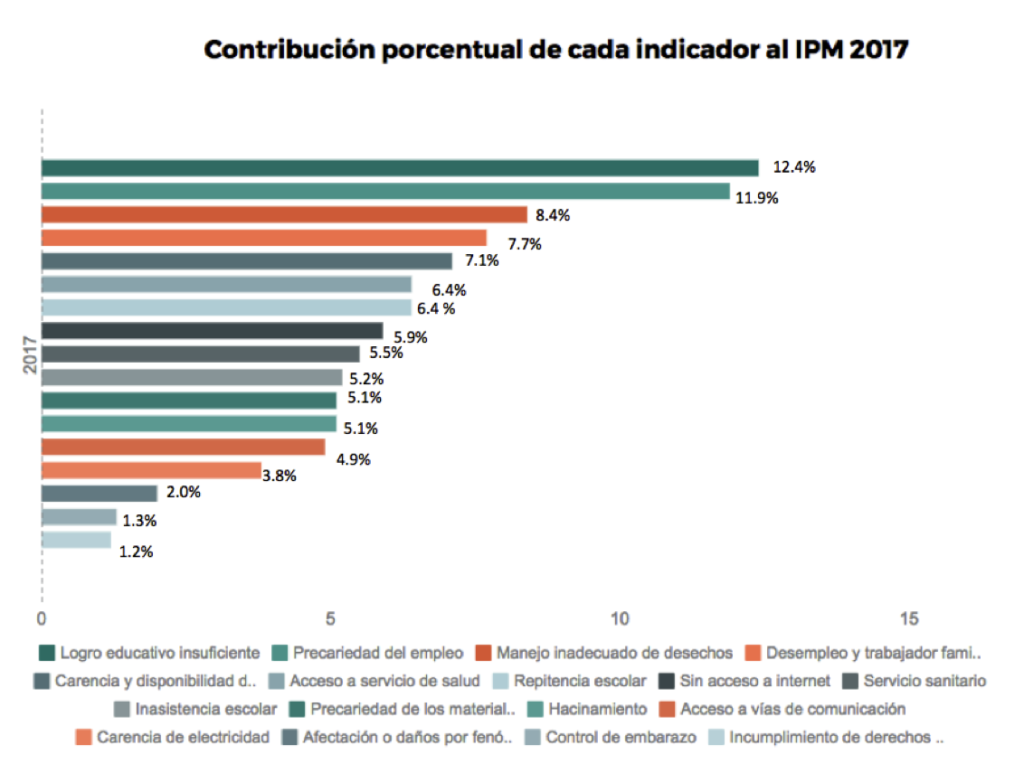
Search
Posts con la etiqueta ‘IPM’
Panama Launches its First Multidimensional Poverty Index and Adopts the Annual Measurement
During the event, Sabina Alkire, founder and director of the Oxford Poverty and Human Development Initiative (OPHI) and one of the creators of the methodology for calculating the MPI, applauded the Panamanian government for taking this historic step towards measuring and combating poverty in an integrated manner. She recognised the hard work done by the staff of the Ministry of Economy and Finance, the Ministry of Social Development and the National Institute of Statistics and the Census of the Comptroller’s Office of the Republic that worked with the technical assistance of the University of Oxford for a year to develop and now launch the national MPI. The results of the assessment have since been verified by the World Bank and the United Nations Development Programme.
Results of the Panama MPI
19.1% of the Panamanian population live in multidimensional poverty households.
The source of information for the construction of this first MPI, and subsequent measurements, is the Multiple Purpose Survey, also known as the Household Survey, which is undertaken every March by the National Institute of Statistics and Censuses. This will allow comparisons to be made year-on-year in order to chart changes over time in multidimensional poverty at the national level.
The Panamanian MPI is comprised of seventeen indicators or deprivations spread over five dimensions: 1) Education, 2) Housing, basic services and Internet access, 3) Environment, neighborhood and sanitation (4) Employment, 5) Health. A household is considered to be in multidimensional poverty if it is deprived in five or more of the indicators.
The Education dimension contributes to 23.9% of the total MPI percentage, Employment follows with 20.9%, Environment, neighborhood and sanitation 20.7%, Housing, basic services and Internet access 19.8% and, finally, Health with 14.7%.
With regards to province and indigenous region-specific details, the Panamanian MPI reveals that in the Ngäbe Bugle region 93.4% of people are multidimensional poor. The Guna Yala region follows with 91.4%, Emberá Wounaan 70.8%, Bocas del Toro 44.6%, Darién 40%, Coclé 22.6%, Veraguas 19.1%, Colón 16.4%, West Panama 15.6%, Chiriquí 12.4%, Panama 8.5%, Herrera 8.5% and, finally, Los Santos Province with 4.2% of its population in multidimensional poverty.
What the MPI measures
- Incidences of multidimensional poverty or quantity of households in multidimensional poverty conditions.
- The intensity of poverty suffered.
- The deprivations of these households.
- The specific dimensions of wellbeing to which the authorities should prioritise their public policy efforts, which will in turn foster better relations between different sectors in society.
- The effects caused by public policy and investment in combating poverty.
- The proportional assignment of resources to those most in need in accordance with the rest of a given geographical area.
Achievements of the Panama Plan: The Country for All – Zero Poverty
The plan, adopted by Executive Decree in the Las Minas district of Herrera, was created with long-term goals in mind, aiming to be achieved by 2030. It aims to provide sustainability and stability to social investment programmes in priority areas, measuring its progress in the meantime through the national MPI.
The Plan will focus, integrate and enhance services, infrastructure and social programmes and thereby guarantee the break away from poverty through growth and access to opportunities.
Translated from Spanish to English by Alexander Cavan, United Nations Volunteer.
PANAMA MPI (in Spanish)















Recent Comments